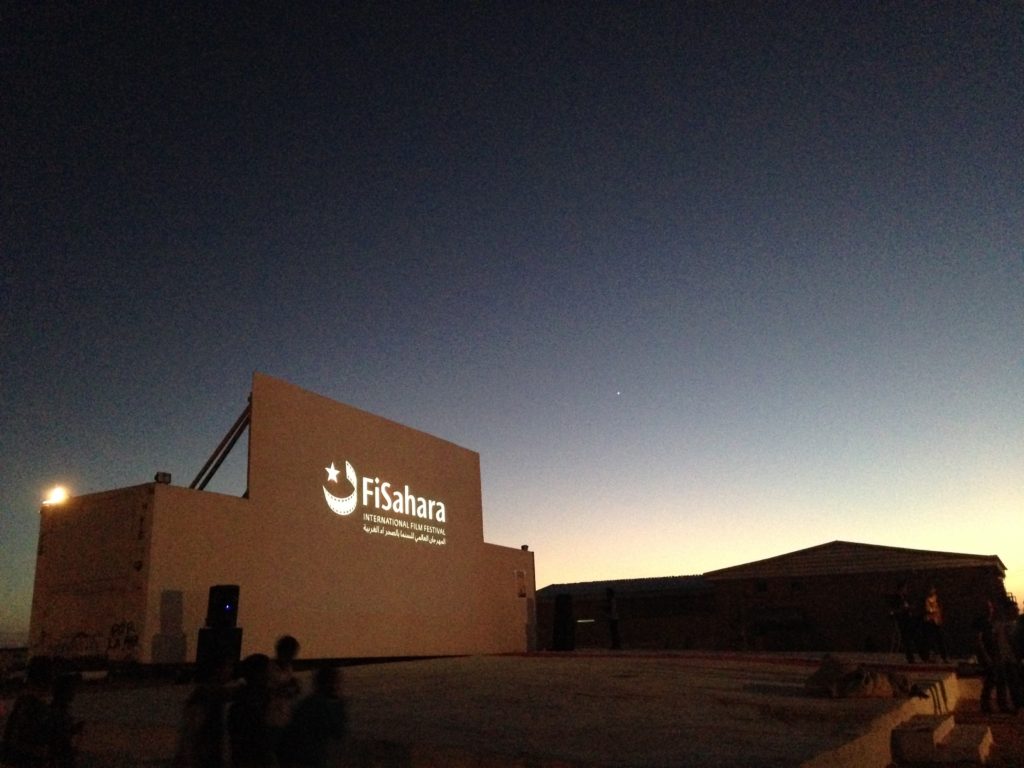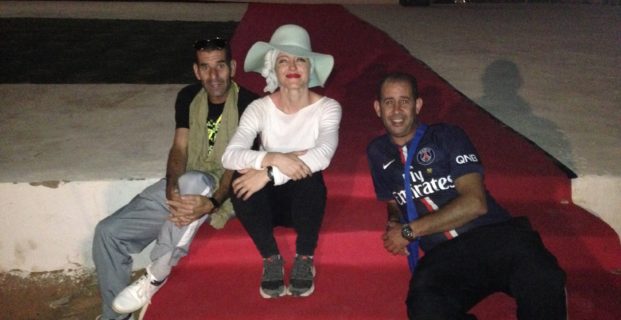The FISahara film festival is perhaps the most remote and unique film festival in the world; taking place inside a refugee camp in South Western Algeria.
Around 175,000 Sahrawi people, displaced from the Western Sahara, live in 4 refugee camps around Tindouf as they wait for a solution to a dispute that has forced them into exile from their native land. They have been waiting, in these camps, since 1975.
Dakhla, the most remote of the camps and with a population of around 22,000, hosts FISahara, now in its 13th year, with films shown across 2 screens under the stars. The festival strives to draw international awareness to the situation as well as to use film to bring entertainment, convey knowledge and empower the refugees.
Prior to going to the festival I had read a quote from Javier Bardem stating that the festival was “nothing short of a miracle” During the festival that quote came to mind time and time again. To pull off an international film festival in the middle of the Sahara desert inside a refugee camp with very few resources is very nearly impossible. (electricity was just installed in the camps 5 months ago)
I flew with Air Algeria, on a charted airplane from Madrid to Tindouf, along with 159 other visitors, journalists, filmmakers and festival staff. We carried with us all the equipment needed for the festival (technical equipment as well as a trapeze structure for the closing night ceremony) After landing at Tindouf military airport we set off across the desert in a convoy of 15 or so vehicles and were accompanied by a police escort.
Five hours or so later we pulled off the long straight road and headed across the sand for several miles. Arriving around midnight, I disembarked from the bus to camels, crowds of people and the vast starry African sky.
All the visitors are hosted by local refugee families. I joined two Swiss tourists and an American graduate student and followed our host mother, Warda, along the sandy roadways of the camp and into her house, where strong sweet tea was immediately served.
The festival takes place over five days and includes round table discussions on human rights issues, a camel race and a concert on the sand dunes. In the evening films are shown on screens set up against the side of trucks, with a projector installed inside another small truck. The audience sits on the ground on blankets. The red carpet, flown in from Spain’s most important film festival, San Sebastian, is rolled out in front of one of the screens. The people crossing the red carpet weren’t the usual glittering celebrities often seen at festivals, but rather people surviving under occupied rule, from all around the world, as directors and producers introduced their films and talked of their plights or of the plights of others whom they had filmed. This year the theme was Occupied Peoples, and watching films charting human rights abuses around the world while sitting in a refugee camp was an extremely moving experience.
Integrating into a family of refugees for a few short days is an incredibly eye opening experience. My host mother Warda (28yrs old) was born in the camp, received her psychology degree from a university in Algiers and now works in the camp hospital. She speaks French as well as Arabic and showed me how to wrap a headscarf and I showed her how to mime. Never having met a mime before she asked me in what country do they speak mime? Spending the last few moments together in the camp before I set off we both stared up at the beautiful full moon. It was a moment I’ll never forget.
The festival is a reminder of the power of film to bring people together, ignite discussions, raise awareness and offer solidarity. It is also a reminder of the value of comedy as, on the last night, beneath a bright full moon, a Buster Keaton film played and the laughter of the children rang out into the beautiful African night sky.
In 2010 a film school was set up, which we visited on our last day at the festival. In the first two years, Sahrawi women made up about 85% of the school’s student body. This make up reflects women’s key role in Sahrawi society; women and girls built the refugee camps and continue to play a critical role in Sahrawi life; occupying leadership positions in Sahrawi polictics, health, education and culture.
For further information about the school and the festival please click HERE
To watch Javier Bardem’s documentary about the situation Sons of The Clouds click HERE


